International
Mulino reiterates that he would be willing to give asylum to Maduro in Panama to solve the crisis
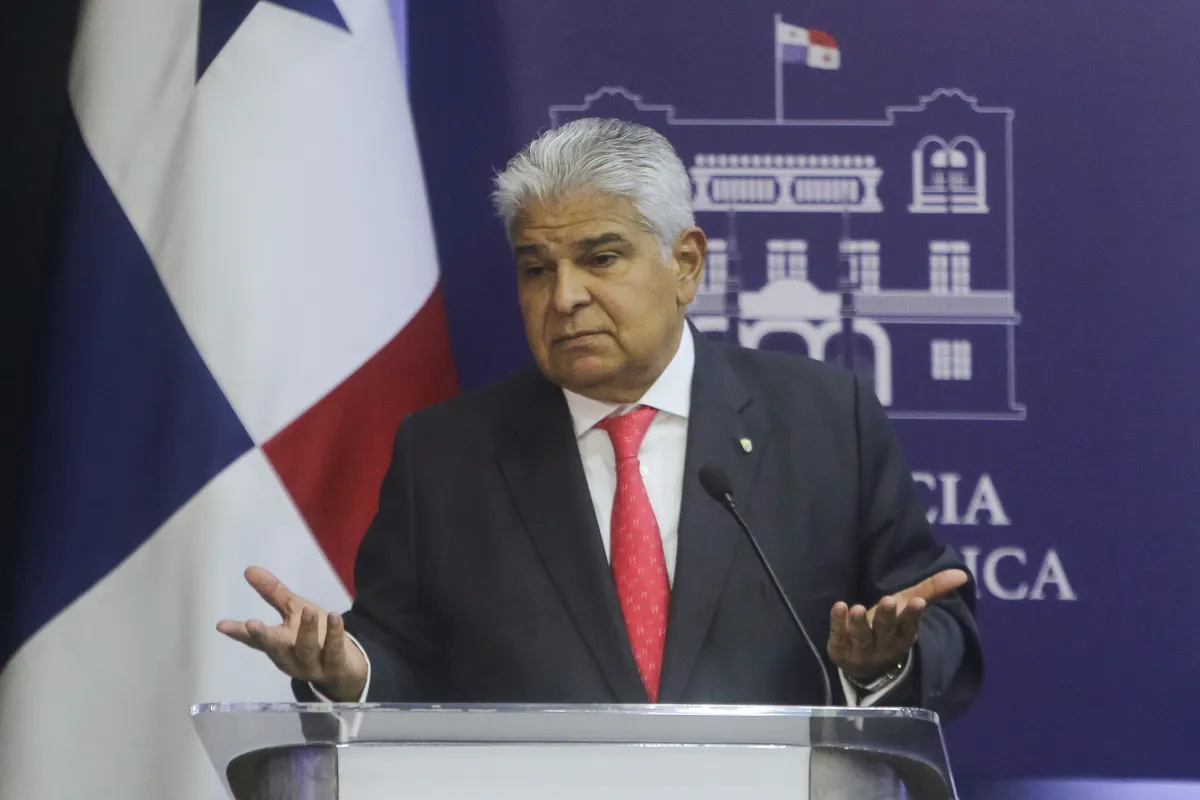
The president of Panama, José Raúl Mulino, reiterated that he would be willing to give political asylum to the Venezuelan president, Nicolás Maduro, to solve the crisis in the Caribbean country after the questioned presidential elections on July 28.
“If that is the contribution quota to get out of this that Panama has to do, putting our soil for this man (Maduro) and his family to leave Venezuela, Panama would do it, without any doubt,” Mulino said in an interview with CNN, in which he maintained his position of offering that asylum in order to be a facilitator to the crisis.
Mulino also did not rule out the option of offering political asylum to other members of Chavismo, if necessary.
“As far as Panama can cooperate (it will). And if that is the quota of cooperation (extending asylum) that we have to do, I would do it,” added the Panamanian president, who has been a strong critic of the Venezuelan elections, even before it was held and the situation unleashed behind them.
Mulino “transmitted” to the president of Brazil, Luiz Inácio Lula, through the Foreign Ministry, the disposition of Panama “to be the bridge or transition of leaving Venezuela to a third country,” although, he added, he does not believe “that he can stay in Panama (Maduro),” since that “it would cost him a lot to sell it to the population, but it is not the first time that Panama has helped a crisis of this nature.”
The Brazilian president, along with the Colombian, Gustavo Petro, and the Mexican, Andrés Manuel López Obrador, have opted for a more cautious position after the announcement of Venezuela’s electoral results, by abstaining or absent from voting in the Organization of American States (OAS) on a frustrated resolution that required the publication of the minutes.
The Venezuelan National Electoral Council (CNE) proclaimed the current president of that country, Nicolás Maduro, as the winner with more than 51% of the votes, but without providing any evidence, unlike the platform of the majority opposition, which has shown electoral records that show the winner of his candidate, Edmundo González Urrutia, with a wide margin.
Mulino said on several occasions during the interview that “it is not the first time that Panama faces this type of problem with political characters on the run” and that “there have been other leaders fleeing, who have fallen here, with the idea of Panama of providing a solution to the political and internal problems.”
The president recalled the cases of former Argentine President Juan Domingo Perón in 1956, Guatemala’s Jorge Serrano Elías (1990-1993) and the former Haitian coup general Raoul Cedrás (1991-1994), to whom Panama granted asylum.
Panama recognized Edmundo González as the “president-elect” after considering the elections in Venezuela fraudulent. Both countries suspended diplomatic relations and closed airspace.
International
Former South Korean President Yoon sentenced to five years in prison
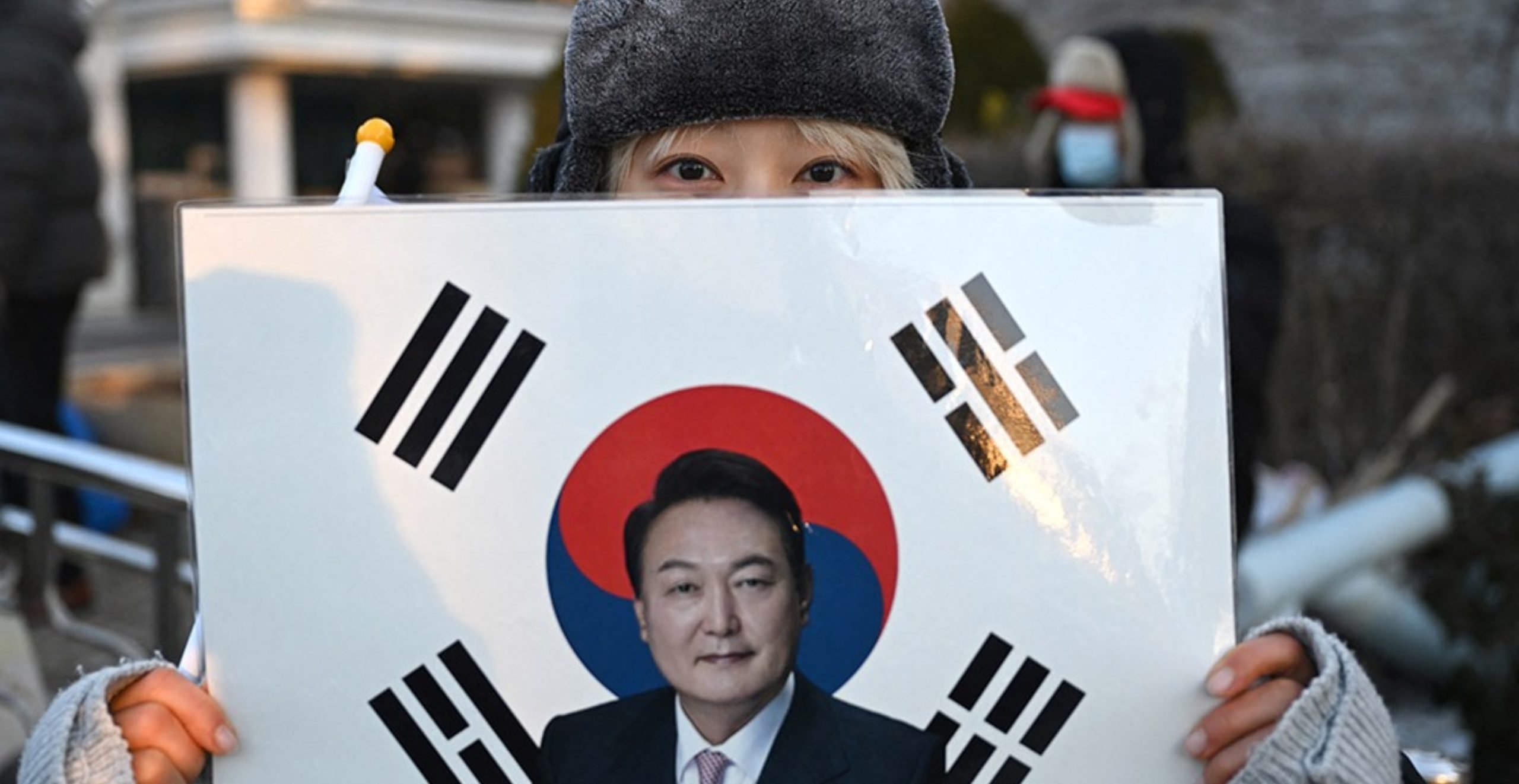
Former South Korean president Yoon Suk-yeol was sentenced on Friday to five years in prison for obstruction of justice and other charges, concluding the first in a series of trials stemming from his failed attempt to impose martial law in December 2024.
The sentence is shorter than the 10-year prison term sought by prosecutors against the 65-year-old conservative former leader, whose move against Parliament triggered a major political crisis that ultimately led to his removal from office.
Yoon, a former prosecutor, is still facing seven additional trials. One of them, on charges of insurrection, could potentially result in the death penalty.
On Friday, the Seoul Central District Court ruled on one of the multiple secondary cases linked to the affair, which plunged the country into months of mass protests and political instability.
International
U.S. deportation flight returns venezuelans to Caracas after Maduro’s ouster
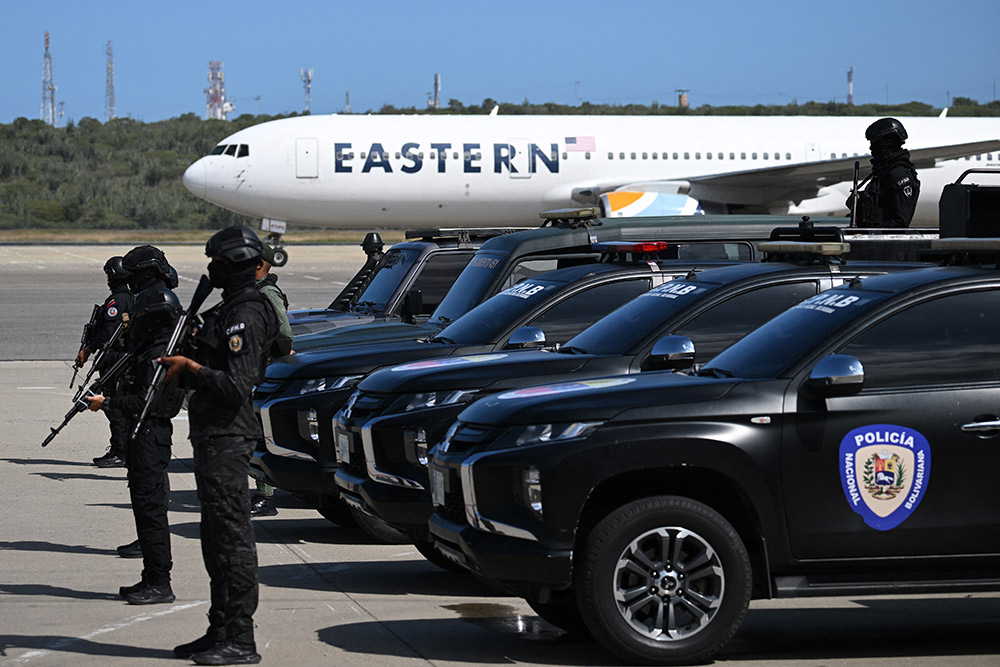
A new flight carrying 231 Venezuelans deported from the United States arrived on Friday at the airport serving Caracas, marking the first such arrival since the military operation that ousted and captured President Nicolás Maduro.
On January 3, U.S. forces bombed the Venezuelan capital during an incursion in which Maduro and his wife, Cilia Flores, were captured. Both are now facing narcotrafficking charges in New York.
This was the first U.S.-flagged aircraft transporting migrants to land in Venezuela since the military action ordered by President Donald Trump, who has stated that he is now in charge of the country.
The aircraft departed from Phoenix, Arizona, and landed at Maiquetía International Airport, which serves the Venezuelan capital, at around 10:30 a.m. local time (14:30 GMT), according to AFP reporters on the ground.
The deportees arrived in Venezuela under a repatriation program that remained in place even during the height of the crisis between the two countries, when Maduro was still in power. U.S. planes carrying undocumented Venezuelan migrants continued to arrive throughout last year, despite the military deployment ordered by Trump.
International
Sheinbaum highlights anti-drug gains after U.S. says challenges remain
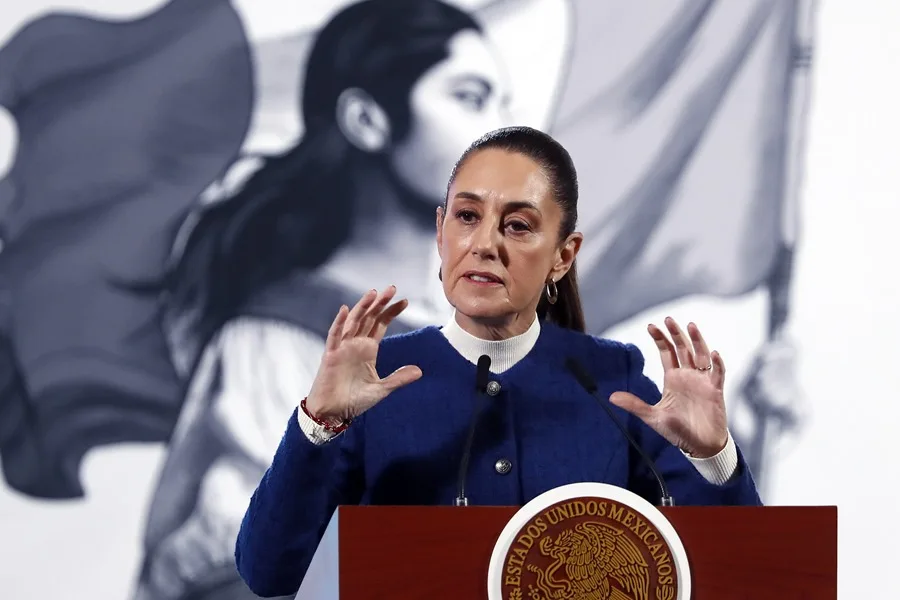
Mexican President Claudia Sheinbaum on Friday highlighted her government’s achievements in the fight against drug trafficking, after the United States said challenges remain in combating organized crime.
On Thursday, Mexican Foreign Minister Juan Ramón de la Fuente held talks with his U.S. counterpart, Secretary of State Marco Rubio. Following the meeting, the U.S. State Department said in a statement that “despite progress, challenges still exist” in addressing organized crime.
“There are very strong results from joint cooperation and from the work Mexico is doing: first, a 50% reduction in fentanyl seizures at the U.S. border,” Sheinbaum said during her regular morning press conference.
The president also said that authorities have seized nearly 320 tons of drugs and that there has been a “40% decrease in intentional homicides in Mexico” since the start of her administration on October 1, 2024.
Sheinbaum added that the United States should implement campaigns to reduce drug consumption within its territory and curb the flow of weapons into Mexico.
“There are many results and there will be more, but there must be mutual respect and shared responsibility, as well as respect for our sovereignties,” she said.
On Monday, Sheinbaum held a phone call with U.S. President Donald Trump to discuss security issues. She said she once again ruled out the presence of U.S. troops in Mexico to fight drug cartels.
Security has been a recurring issue used by Trump to threaten tariffs on Mexico and to pressure negotiations over the USMCA (T-MEC) free trade agreement, which are scheduled for 2026.
The agreement is crucial for Mexico’s economy, as about 80% of the country’s exports are destined for the United States.
-

 International4 days ago
International4 days agoDeadly van accident near Brazil border leaves 11 dead in Bolivia
-

 International4 days ago
International4 days agoU.S. to host Danish and Greenlandic Foreign Ministers at the White House
-

 Central America4 days ago
Central America4 days agoU.S. and El Salvador maintain close partnership, embassy says
-
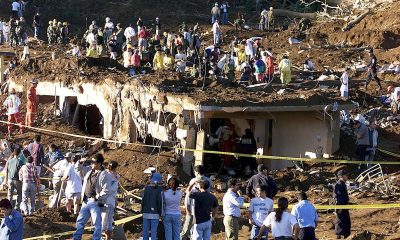
 Central America4 days ago
Central America4 days agoTaiwan’s $10 million donation after 2001 earthquakes allegedly diverted in El Salvador
-
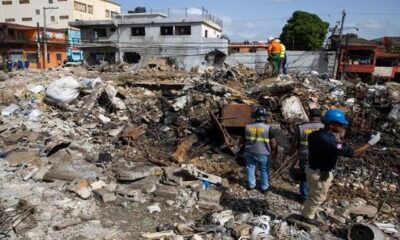
 International4 days ago
International4 days agoDominican court postpones hearing in deadly nightclub collapse case
-

 International4 days ago
International4 days agoPolice hunt gunmen after fatal shooting in Corsica
-
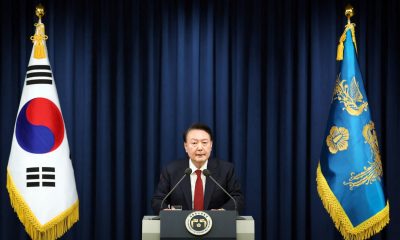
 International4 days ago
International4 days agoEx-President accused of bid to establish dictatorship as verdict nears in South Korea
-

 International4 days ago
International4 days agoVenezuelan opposition leader dedicates Nobel Prize to Trump
-
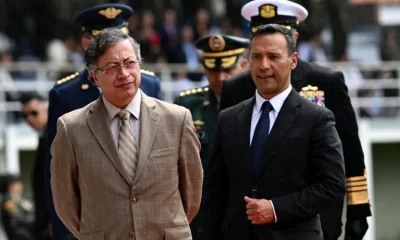
 International3 days ago
International3 days agoColombian Defense Chief Meets U.S. Officials to Advance Bilateral Narcotics Strategy
-

 International2 days ago
International2 days agoUkraine declares nationwide energy emergency amid russian attacks and extreme cold
-

 International2 days ago
International2 days agoIran closes airspace amid U.S. threats and deadly nationwide protests
-

 Central America3 days ago
Central America3 days agoBukele warns crime can become a ‘parallel government’ during visit to Costa Rica
-

 International2 days ago
International2 days agoX moves to block Grok from creating sexualized images of real people amid legal scrutiny
-
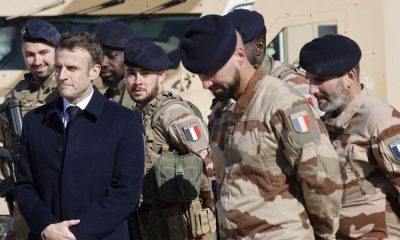
 International2 days ago
International2 days agoFrance joins Denmark’s ‘Operation Arctic Resistance’ in Greenland amid U.S. tensions
-

 International2 days ago
International2 days agoHillary Clinton skips Epstein inquiry as house panel threatens contempt charges
-
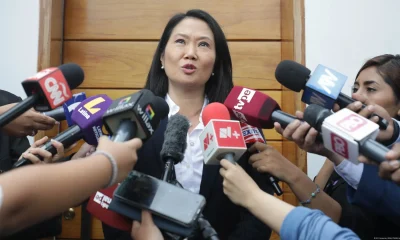
 International3 days ago
International3 days agoPeruvian Court Orders Definitive Dismissal of Money Laundering Case Against Keiko Fujimori
-

 International2 days ago
International2 days agoU.S.–Denmark tensions escalate as Trump pushes NATO to back U.S. claim on Greenland
-
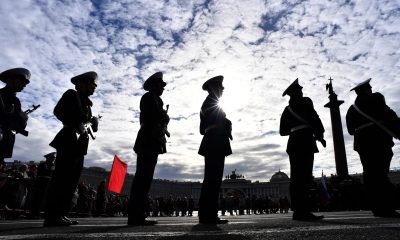
 International2 days ago
International2 days agoUK Intelligence estimates russian casualties in Ukraine at over 1.2 million
-
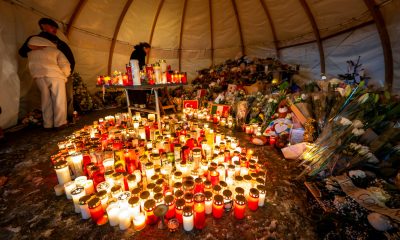
 International2 days ago
International2 days agoSwiss Canton of Valais Grants Emergency Aid to Victims of Crans-Montana Bar Tragedy
-

 International3 days ago
International3 days agoU.S. to suspend visa processing for applicants from 75 countries
-
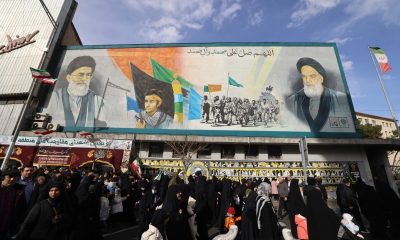
 International20 hours ago
International20 hours agoCanada accuses Iran of killing its citizen during anti-government unrest
-

 International20 hours ago
International20 hours agoSheinbaum highlights anti-drug gains after U.S. says challenges remain
-

 International3 hours ago
International3 hours agoU.S. deportation flight returns venezuelans to Caracas after Maduro’s ouster
-

 International3 hours ago
International3 hours agoFormer South Korean President Yoon sentenced to five years in prison


























